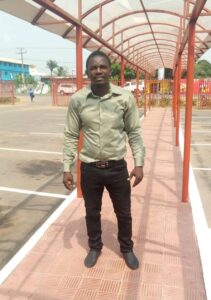Amadu Kamara’s story is emblematic of a deeper crisis in Sierra Leone’s governance, as told by those close to him and eyewitnesses to the tragic events in Makeni. As the secretary of the Makeni District Youth Wing, Kamara was a vocal advocate for local development, a role that placed him at the forefront of critical events on July 17, 2020.
Residents of Makeni organized a peaceful demonstration against the planned relocation of a critical power supply by the government, a move that threatened to leave the city in darkness. Sources close to Kamara recall his efforts to ensure the protest remained nonviolent, emphasizing the need to protect essential infrastructure for the city’s wellbeing.
However, the protest escalated into chaos when heavily armed security forces intervened. Eyewitnesses describe live rounds being fired into the crowd, tear gas blanketing the streets, and scenes of utter devastation. One participant recalled, “It was like a war zone; people were running in all directions.” Kamara himself was struck by a bullet in his leg, while six demonstrators, including a 15-year-old boy, were fatally shot. Dozens were severely injured.
The Hunt for Kamara and His Family
In the aftermath, Kamara became a wanted man. According to neighbors and colleagues, government forces raided his residence, destroying property and killing his dog during the operation. “They were hunting him as if he were a criminal,” a former associate remarked. Forced into hiding, Kamara sought refuge in a hospital, where a trusted doctor—an old family friend—secretly treated him and facilitated his escape.
The government’s pursuit of Kamara didn’t end with him. His mother and two children became targets, facing intense pressure to reveal his whereabouts. Threatened with arrest and possible harm, his mother fled with the children to a provincial town, seeking safety. However, even there, the family remained under constant fear and scrutiny, forcing her to make the difficult decision to leave the country.
The family sought refuge in a neighboring country, but their situation remains dire. Kamara’s mother and children live in constant fear, unsure of their safety or future. Their exact location remains unknown, as his mother has avoided contact to protect them from further danger. “She feels unsafe, even far from Sierra Leone,” a close family friend shared, describing their precarious situation.
Kamara’s experience is part of a larger narrative of alleged government suppression. Residents cite earlier incidents, such as the April 2020 Pademba Road Prison massacre, where over 30 prisoners died during a protest, and the August 2022 demonstrations against rising living costs, which left 27 protesters dead. The fear of a shadowy “death squad” targeting dissenters looms large, with Kamara’s associates pointing to the assassination of political blogger Hassan Conteh as a chilling example.
Kamara’s exile, coupled with the plight of his displaced family, highlights the human cost of political oppression in Sierra Leone. While his story remains a testament to resilience, those who know him continue to call for accountability, justice, and a brighter future for the nation. His family’s suffering serves as a painful reminder of the far-reaching impact of state persecution, one that goes beyond the individual and tears apart the lives of loved ones.
